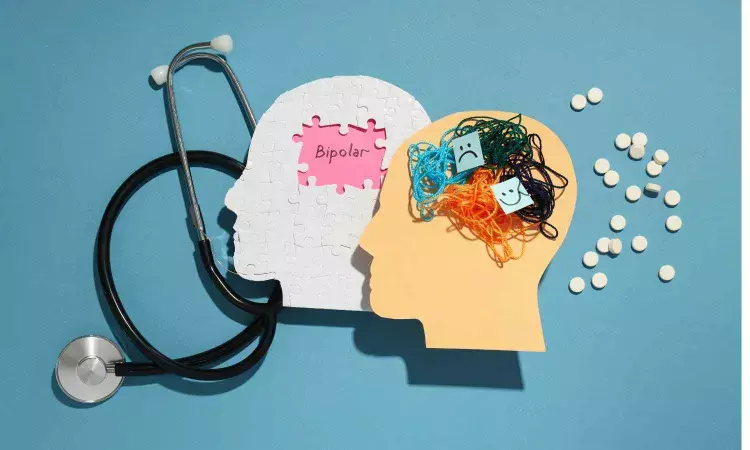- Home
- Medical news & Guidelines
- Anesthesiology
- Cardiology and CTVS
- Critical Care
- Dentistry
- Dermatology
- Diabetes and Endocrinology
- ENT
- Gastroenterology
- Medicine
- Nephrology
- Neurology
- Obstretics-Gynaecology
- Oncology
- Ophthalmology
- Orthopaedics
- Pediatrics-Neonatology
- Psychiatry
- Pulmonology
- Radiology
- Surgery
- Urology
- Laboratory Medicine
- Diet
- Nursing
- Paramedical
- Physiotherapy
- Health news
- Fact Check
- Bone Health Fact Check
- Brain Health Fact Check
- Cancer Related Fact Check
- Child Care Fact Check
- Dental and oral health fact check
- Diabetes and metabolic health fact check
- Diet and Nutrition Fact Check
- Eye and ENT Care Fact Check
- Fitness fact check
- Gut health fact check
- Heart health fact check
- Kidney health fact check
- Medical education fact check
- Men's health fact check
- Respiratory fact check
- Skin and hair care fact check
- Vaccine and Immunization fact check
- Women's health fact check
- AYUSH
- State News
- Andaman and Nicobar Islands
- Andhra Pradesh
- Arunachal Pradesh
- Assam
- Bihar
- Chandigarh
- Chattisgarh
- Dadra and Nagar Haveli
- Daman and Diu
- Delhi
- Goa
- Gujarat
- Haryana
- Himachal Pradesh
- Jammu & Kashmir
- Jharkhand
- Karnataka
- Kerala
- Ladakh
- Lakshadweep
- Madhya Pradesh
- Maharashtra
- Manipur
- Meghalaya
- Mizoram
- Nagaland
- Odisha
- Puducherry
- Punjab
- Rajasthan
- Sikkim
- Tamil Nadu
- Telangana
- Tripura
- Uttar Pradesh
- Uttrakhand
- West Bengal
- Medical Education
- Industry
Lithium or valproate for mood disorders were linked to reduced suicide rates: Study

A new study published in the Journal of Psychiatric Research found that patients with schizophrenia or bipolar disorder (BD) who recently used lithium and valproate had a 34%–46% decreased risk of suicide.
Suicide rates are startlingly high, especially for people with psychoses or severe mood disorders, despite advancements in the treatment of mental problems. Specifically, the risk of suicide is more than eight times greater in people with schizophrenia (SZ) than in the general population, and at least 5–13% of SZ patients die by suicide over their lifetime. Furthermore, between 20 and 30 times as many people with bipolar disorders die by suicide as the general population, with up to 19% of BD patients dying by suicide. Suicidal behavior in SZ and BD patients is a very undertreated, potentially fatal illness, even though the prevalence of these chronic mental disorders is as high as 1% to 5% of the general population.
Suicide rates among people with bipolar illness and schizophrenia remain startlingly high despite advancements in psychiatric therapy. The data supporting the possible reduction of suicide in these populations by valproate, lithium, and clozapine is few and sometimes contradictory. This study used a national health insurance database in South Korea to assess the anti-suicidal efficacy of various drugs.
The National Health Information Database data were used in a retrospective cohort analysis. 96,336 individuals with BD and 102,540 patients with SZ who were diagnosed between 2007 and 2010 were included in this study. This study evaluated the relationship between recent prescriptions for valproate, lithium, clozapine, and other psychiatric medications and suicide mortality. The study employed a time-dependent Cox regression analysis to determine the suicide hazard ratios (HR).
SZ and BD had suicide rates of 308.0 and 285.1 per 100,000 person-years, respectively. Both SZ (HR of lithium: 0.58, 95% CI: 0.46–0.72; HR of valproate: 0.61, 95% CI: 0.52–0.71) and BD (HR of lithium: 0.54, 95% CI: 0.44–0.65; HR of valproate: 0.66, 95% CI: 0.57–0.76) had significantly lower suicide hazard ratios after controlling for confounders. Although it was statistically insignificant, clozapine was linked to a decreased risk of suicide among SZ patients.
Overall, patients with SZ and BD experience notable anti-suicidal effects with lithium and valproate, highlighting the possible role mood stabilizers may play in preventing suicide in these patients. Clinical judgment would be required to weigh the advantages and risks of prescribing lithium and valproate to suicidal people with [schizophrenia] or BD because treatment with these medications has a number of side effects, including weight gain, hypothyroidism, nephrotoxicity, teratogenicity, and thrombocytopenia.
Source:
Lee, J., Lim, J., Kim, S. H., Kim, J., Mun, K. H., & Kang, J. (2025). Anti-suicidal effectiveness of clozapine, lithium, and valproate in patients with schizophrenia and bipolar disorder: A real-world nationwide study. Journal of Psychiatric Research, 185, 105–111. https://doi.org/10.1016/j.jpsychires.2025.03.045
Neuroscience Masters graduate
Jacinthlyn Sylvia, a Neuroscience Master's graduate from Chennai has worked extensively in deciphering the neurobiology of cognition and motor control in aging. She also has spread-out exposure to Neurosurgery from her Bachelor’s. She is currently involved in active Neuro-Oncology research. She is an upcoming neuroscientist with a fiery passion for writing. Her news cover at Medical Dialogues feature recent discoveries and updates from the healthcare and biomedical research fields. She can be reached at editorial@medicaldialogues.in
Dr Kamal Kant Kohli-MBBS, DTCD- a chest specialist with more than 30 years of practice and a flair for writing clinical articles, Dr Kamal Kant Kohli joined Medical Dialogues as a Chief Editor of Medical News. Besides writing articles, as an editor, he proofreads and verifies all the medical content published on Medical Dialogues including those coming from journals, studies,medical conferences,guidelines etc. Email: drkohli@medicaldialogues.in. Contact no. 011-43720751


